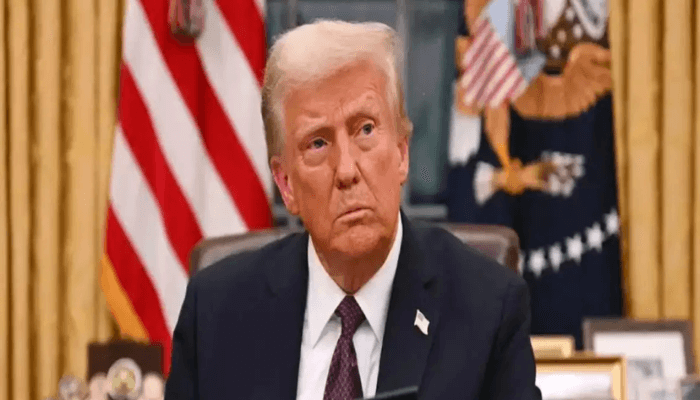Donald Trump, United States president, has once again pledged to slap a 100 percent tariff on films produced outside the country, a move he says is aimed at protecting America’s movie industry.
In a post on Truth Social on Monday, Trump accused foreign governments of “stealing” Hollywood by luring producers and directors with attractive tax breaks and subsidies. He claimed the trend had left California — home to the U.S. film industry — “particularly hard hit” under what he called the state’s “weak and incompetent” leadership.
Read also: Trump’s Tariff On Nigeria Hits Shipping Volumes, SARA CEO Warns
“Our movie making business has been stolen from the United States of America, by other countries, just like stealing candy from a baby,” Trump wrote. “Therefore, in order to solve this long time, never ending problem, I will be imposing a 100% tariff on any and all movies that are made outside of the United States.”
The president did not say when the measure would take effect or how it would be enforced.
Read also: Trump and Starmer show unity but split on Palestinian state during London talks
This is not the first time Trump has floated the idea. In May, he announced a similar plan, arguing that Hollywood’s decline posed a “national security threat.” At the time, he directed the department of commerce to begin work on implementation, though no concrete details followed.
If put into practice, the tariffs would mark a first: applying duties not to goods but to creative services. Industry analysts say that makes enforcement complicated, given how globalised film financing and distribution have become.
California and other U.S. states already offer significant incentives to keep productions local, though filmmakers
Read also:Trump launches $1m “gold card” visa for wealthy foreigners
continue to take advantage of cheaper labour and subsidies abroad. Whether Trump’s latest announcement represents an expansion of his earlier plan or simply a repetition remains unclear.
For now, the policy remains more political talking point than economic reality — one that may play well with his base but leaves the mechanics of enforcement, and its impact on global cinema, an open question.








